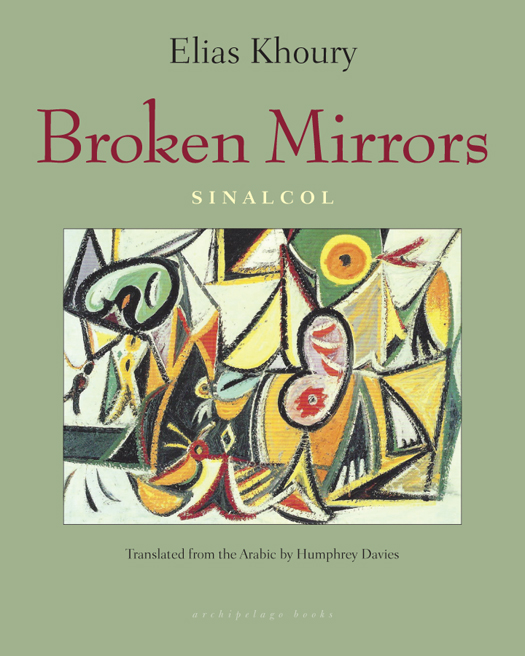
Broken Mirrors
Sinalcol
کتاب های مرتبط
- اطلاعات
- نقد و بررسی
- دیدگاه کاربران
نقد و بررسی

November 1, 2015
A man returns to his native Lebanon--and a long history of personal and cultural turmoil--in this panoramic novel. Arguably Lebanon's leading literary figure (Yalo, 2008, etc.), Khoury centers this novel on Karim, a dermatologist who's been enmeshed in the nation's shifting fortunes throughout the second half of the 20th century. It's 1989, and he's been asked by his brother, Nasim, to help start a hospital in Beirut. Karim has lived in a self-imposed exile for years in France with his wife and children, and he's disinclined to go back, for reasons both political (a distaste for the extremist and sectarian rebels he'd interacted with) and personal (Nasim married his ex-girlfriend, for starters). Karim and Nasim have distinct personalities--upon his return, Karim muses on his various affairs, while Nasim recalls his ineptitude in various pursuits, from college to drug dealing. But Khoury plainly intends them to be archetypes of Lebanon's struggles to define itself after years (indeed, centuries) of religious sectarianism and civil war. Their father thinks of them as twins (though they were born just less than a year apart), and they serve as mirror images of each other, to pick a metaphor Khoury returns to often. The civil war, for instance, is "an assemblage of broken mirrors...images that reproduce each other but refuse to form a coherent whole." Khoury fragments the narrative in a similar fashion, sending Karim backward and forward in time to contemplate his childhood, his romantic relationships, religious leaders, and general sense of feeling trapped by the country's past. These shards of memory aren't a mess, exactly--Khoury's prose, via Davies' translation, is clean and plainspoken--but the time shifting and historical detail often leave the reader feeling whipsawed. (A helpful glossary of significant historical and cultural references is appended.) A lyrical, antic, sometimes-plodding embodiment of the complications of self and nationhood.
COPYRIGHT(2015) Kirkus Reviews, ALL RIGHTS RESERVED.

Starred review from September 15, 2015
Having fled war-torn Beirut for France 20 years before, Karim Shammas returns home, perhaps because he's homesick, perhaps to hunt his father's killer. Perhaps, too, he wants to find Sinalcol, his "spiritual twin," a shadowy figure whose nickname he's inherited. Yes, he's trying to see himself, but all the mirrors are broken. "The war will never end because it's inside us," says one character, and, indeed, war wreckage and culture clash here lie so close to personal wreckage and familial clash as to be indistinguishable. VERDICT Within a finely rendered sociopolitical framework, Lebanese novelist Khoury (Gate of the Sum) dives down deeply to portray enduring personal pain.
Copyright 2015 Library Journal, LLC Used with permission.

























دیدگاه کاربران